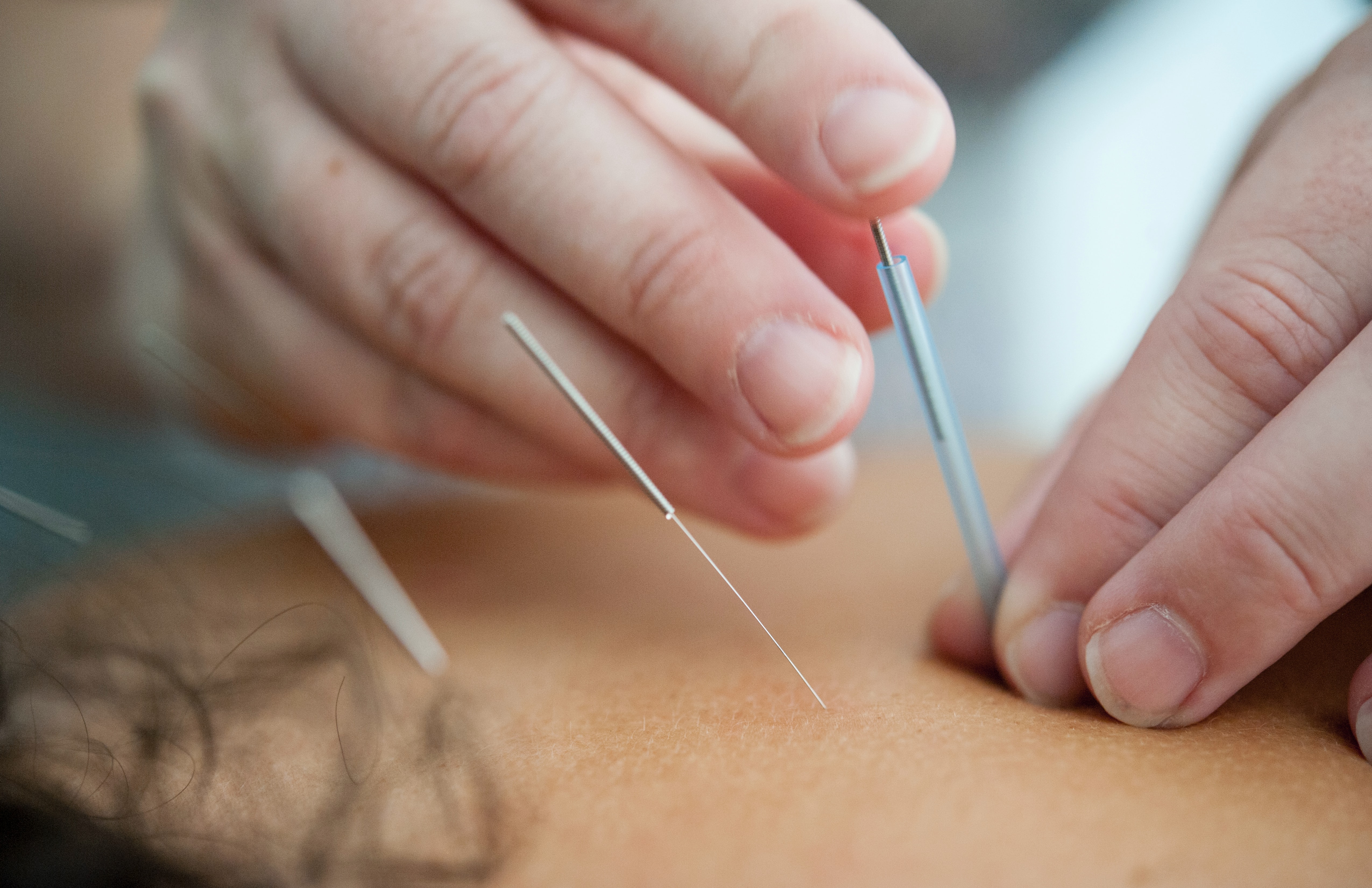Alternative Medicine

Complimentary and Alternative Medicine Therapies
Do they work and are they safe as an alternative to conventional medicines? These are two important questions about Alternative Medicine that get asked when people are presented with products and practices that are not considered part of the standard medical care, or health care that falls out side of the realm of conventional medicines. Lots of people are now starting to change their minds about synthetic drugs and medicines as they become aware of conventional medicine side effects.
For many types of alternative medicine, the scientific evidence of it's effectiveness exists and further studies are always being done. But perhaps the most powerful evidence of the healing powers of alternative medicine are the testimonies of those who have undergone miraculous recoveries through the use of these complimentary and alternative medicine therapy. Of course it's a contentious subject and there are many ardent campaigners on both sides.
Unfortunately there are also those who see an opportunity to make money by preying on the naivety and fear of people who are suffering from pain and diseases. It is of utmost importance that any medical treatment you seek whether alternative or mainstream be done with a qualified and reputable individual.
How are Complementary Medicine and Alternative Medicine different from each other?
Complementary medicine is used together with conventional medicine. An example of a complementary therapy is using aromatherapy to help lessen a patient's discomfort following surgery.
Alternative medicine is used in place of conventional medicine. An example of an alternative therapy is using a special diet to treat cancer instead of undergoing surgery, radiation, or chemotherapy.

The safety of alternative medicines can vary widely. Some alternative therapies, such as herbs and supplements, may be safe when used correctly, while others, such as acupuncture or homeopathy, may carry a risk of injury or side effects. It is important to consult with a qualified healthcare professional before using any alternative medicine, as they can help you understand the potential risks and benefits. Additionally, it is important to ensure that the alternative medicine is manufactured in a reputable facility and meets good manufacturing practices.
Alternative Medicine Therapies and Definitions
Acupuncture ("AK-yoo-pungk-cher") is a method of healing developed in China at least 2,000 years ago. Today, acupuncture describes a family of procedures involving stimulation of anatomical points on the body by a variety of techniques. American practices of acupuncture incorporate medical traditions from China, Japan, Korea, and other countries. The acupuncture technique that has been most studied scientifically involves penetrating the skin with thin, solid, metallic needles that are manipulated by the hands or by electrical stimulation.
Anodyne Therapy is a unique light therapy used for the treatment of pain. This infrared therapy effectively brings pain relief without the use of drugs and is non-invasive. It does this by harnessing the healing power of infrared light.
Aromatherapy ("ah-roam-uh-THER-ah-py") involves the use of essential oils (extracts or essences) from flowers, herbs, and trees to promote health and well-being.
Ayurveda ("ah-yur-VAY-dah") is a CAM whole medical system that has been practiced primarily in the Indian subcontinent for 5,000 years. Ayurveda includes diet and herbal remedies and emphasizes the use of body, mind, and spirit in disease prevention and treatment.
Chiropractic ("kie-roh-PRAC-tic") is a CAM whole medical system. It focuses on the relationship between bodily structure (primarily that of the spine) and function, and how that relationship affects the preservation and restoration of health. Chiropractors use manipulative therapy as an integral treatment tool.
Dietary supplements. Congress defined the term "dietary supplement" in the Dietary Supplement Health and Education Act (DSHEA) of 1994. A dietary supplement is a product (other than tobacco) taken by mouth that contains a "dietary ingredient" intended to supplement the diet. Dietary ingredients may include vitamins, minerals, herbs or other botanicals, amino acids, and substances such as enzymes, organ tissues, and metabolites. Dietary supplements come in many forms, including extracts, concentrates, tablets, capsules, gel caps, liquids, and powders. They have special requirements for labeling. Under DSHEA, dietary supplements are considered foods, not drugs.
Electromagnetic fields (EMFs, also called electric and magnetic fields) are invisible lines of force that surround all electrical devices. The Earth also produces EMFs; electric fields are produced when there is thunderstorm activity, and magnetic fields are believed to be produced by electric currents flowing at the Earth's core.
Essential Oils - These are age-old remedies used for their therapeutic and medicinal benefits. Plants have these powerful chemical compounds hidden inside them - in their roots, seeds, flowers, and bark - which we extract as essential oils. They are natural, aromatic compounds responsible for the plant's scent, protecting it from harmful conditions, and even helping with pollination.
Homeopathic ("home-ee-oh-PATH-ic") medicine is a CAM whole medical system. In homeopathic medicine, there is a belief that "like cures like," meaning that small, highly diluted quantities of medicinal substances are given to cure symptoms, when the same substances given at higher or more concentrated doses would actually cause those symptoms.
Massage ("muh-SAHJ") therapists manipulate muscle and connective tissue to enhance function of those tissues and promote relaxation and well-being.
Naturopathic ("nay-chur-o-PATH-ic") medicine, or naturopathy, is a CAM whole medical system. Naturopathic medicine proposes that there is a healing power in the body that establishes, maintains, and restores health. Practitioners work with the patient with a goal of supporting this power, through treatments such as nutrition and lifestyle counseling, dietary supplements, medicinal plants, exercise, homeopathy, and treatments from traditional Chinese medicine.
Osteopathic ("ahs-tee-oh-PATH-ic") medicine is a form of conventional medicine that, in part, emphasizes diseases arising in the musculoskeletal system. There is an underlying belief that all of the body's systems work together, and disturbances in one system may affect function elsewhere in the body. Some osteopathic physicians practice osteopathic manipulation, a full-body system of hands-on techniques to alleviate pain, restore function, and promote health and well-being.
Qi gong ("chee-GUNG") is a component of traditional Chinese medicine that combines movement, meditation, and regulation of breathing to enhance the flow of qi (an ancient term given to what is believed to be vital energy) in the body, improve blood circulation, and enhance immune function.
Reiki ("RAY-kee") is a Japanese word representing Universal Life Energy. Reiki is based on the belief that when spiritual energy is channeled through a Reiki practitioner, the patient's spirit is healed, which in turn heals the physical body.
Therapeutic Touch is derived from an ancient technique called laying-on of hands. It is based on the premise that it is the healing force of the therapist that affects the patient's recovery; healing is promoted when the body's energies are in balance; and, by passing their hands over the patient, healers can identify energy imbalances.

Traditional Chinese medicine (TCM) is the current name for an ancient system of health care from China. TCM is based on a concept of balanced qi (pronounced "chee"), or vital energy, that is believed to flow throughout the body. Qi is proposed to regulate a person's spiritual, emotional, mental, and physical balance and to be influenced by the opposing forces of yin (negative energy) and yang (positive energy). Disease is proposed to result from the flow of qi being disrupted and yin and yang becoming imbalanced. Among the components of TCM are herbal and nutritional therapy, restorative physical exercises, meditation, acupuncture, and remedial massage.
Important Warning
This material is provided for your information. It is not intended to substitute for the medical expertise and advice of your primary health care provider. We encourage you to discuss any decisions about treatment or care with your health care provider.
Avoid colds and flu with these 10 Steps to Boost Your Immune System Health
Enter your email below and I’ll share new articles, reflections, and practical insights as they’re published.


